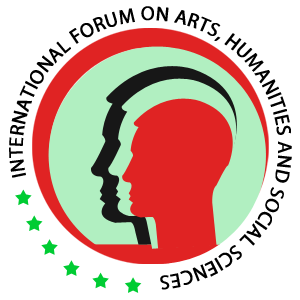Call for papers/Topics
Topics of Interest for Submission include, but are Not Limited to:
Focusing on Pedagogy & Strategies:
- Personalized Learning Pathways: How can we truly tailor education to individual student needs and paces?
- Project-Based Learning (PBL) in Action: Deep dives into successful PBL implementations across different subjects and grade levels.
- Inquiry-Based Learning: Fostering Curiosity: Strategies for designing learning experiences that encourage student-led questions and exploration.
- Gamification and Game-Based Learning: Leveraging game mechanics and digital games to boost engagement and learning outcomes.
- The Power of Play in Learning: Exploring the benefits of playful approaches, even in higher education.
- Flipped Classrooms: Reimagining Class Time: Best practices and innovative models for flipped learning environments.
- Collaborative Learning & Group Dynamics: Effective strategies for fostering productive and equitable group work.
- Assessment for Learning: Beyond Grades: Innovative assessment methods that provide meaningful feedback and drive instruction.
- Culturally Responsive Teaching: Creating inclusive and equitable learning environments that value diverse backgrounds.
- Universal Design for Learning (UDL): Designing accessible and engaging learning experiences for all learners.
- Integrating Arts and Creativity: Exploring the role of arts-based approaches in enhancing learning across disciplines.
- Developing Critical Thinking and Problem-Solving Skills: Innovative strategies to equip students for complex challenges.
Focusing on Technology & Tools:
- AI in Education: Promises and Pitfalls: Exploring the ethical and practical applications of artificial intelligence in teaching and learning.
- Virtual and Augmented Reality in the Classroom: Immersive learning experiences and their impact on student understanding.
- The Role of Learning Management Systems (LMS) Evolution: Beyond basic functionality – leveraging LMS for personalized learning and engagement.
- Digital Storytelling and Multimedia Creation: Empowering students to express their learning through digital media.
- Open Educational Resources (OER) and Accessibility: Leveraging free and open resources to enhance learning opportunities.
- Data-Driven Instruction: Using Analytics to Inform Practice: Effectively collecting and analyzing data to improve teaching and student outcomes.
- Building Digital Citizenship and Media Literacy: Equipping students to navigate the digital world responsibly and critically.
Focusing on the Future of Learning & Systemic Change:
- The Future of the Classroom: Flexible and Hybrid Models: Exploring innovative learning space designs and blended learning approaches.
- Teacher Professional Development in the Age of Innovation: How to support educators in adopting and implementing new teaching methods.
- Leadership for Innovation in Education: Cultivating a school or district culture that embraces experimentation and change.
- Student Agency and Voice in Shaping Learning: Empowering students to take ownership of their educational journey.
- Addressing Learning Loss and Acceleration Strategies: Innovative approaches to support students in recovering and accelerating their learning.
- The Intersection of Social-Emotional Learning (SEL) and Innovative Teaching: Creating supportive and engaging learning environments that foster well-being.
- Global Collaboration and Virtual Exchange: Connecting classrooms across borders for richer learning experiences.
- Measuring the Impact of Innovative Teaching: Developing effective ways to evaluate the success of new approaches.









